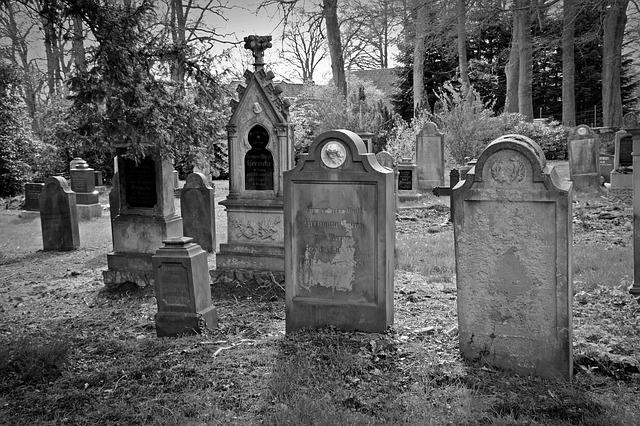How to Find Out if a Loved One Had a Will

Losing a close friend or family member is a time that no one looks forward to. When a loved one passes on, there are many details to consider and a short time to see it through. The situation is very emotional, making it difficult for level-headed thinking and decision-making. Making the announcement, planning the funeral, and other necessities can cause a significant burden in an already difficult time.
Legal Questions After the Death of a Member of the Family
Once the loved one is laid to rest, there are financial and legal tasks that surviving family must contend with. Leaving a list of written instructions can be invaluable for the family members you leave behind.
When a loved one has died, many questions will arise concerning who will handle the deceased’s affairs and how decisions will be made concerning their estate. “How do I find out if my deceased father had a will? Where did my mother put her will?”
A will is a document that addresses any concerns that may arise after the loved one’s death. Wills are crucial in completing the probate process but are only helpful if they can be found. It must be filed with the court after someone dies as a matter of public record.
What Does a Will Do?

A last will and testament can provide valuable instructions for surviving family members after a loved one has passed away on their non-probate assets. The will provides detailed instructions on how the party intended their assets and belongings to be distributed after they are gone. A will also names the person the deceased party has trusted with overseeing the process. This person is called the “executor” or “personal representative.”
Intestate
Intestate is when someone dies without having a will in place. Intestacy laws differ in each state; they act as a makeshift will to determine which heirs are entitled to receive property and the size of each share.
The state determines who can be appointed to administer the deceased parties’ estate shares. It is not uncommon for a state’s intestacy laws to be very different than how the deceased party would have intended their estate to be distributed and to whom.
Filing Probate
Most states have a deadline for filing a will with the probate court after a person’s death. The will that is being filed must be a signed- original copy. It is essential to determine if the deceased did have a will, where the document can be located, and to deposit it with the probate court where the deceased person lived as soon as possible. Like all legal matters, the probate process takes time, so the sooner everything is filed, the better.
How to Find a Will
A current version of the will should be kept in a safe location. In most situations, the person named as executor would have knowledge of the document’s location; in some cases, other beneficiaries may also know of the will’s location or contents.
Unfortunately, paperwork can get lost or misplaced, or sometimes loved ones may die before revealing the location or discussing their wishes with family about their assets. If a person’s will cannot be found, below are some tips and examples to help locate the document and determine if a will exists.
Search the Descendant’s Home
The first place to look is in the loved one’s home. In most cases, the will is in a file or filing cabinet along with tax files and mortgage information. In some cases where the deceased wasn’t as organized, you may want to search the home from top to bottom, check in boxes, the cabinet above the refrigerator, and check everywhere. Don’t forget to search for a locked safe where the decedent lived.
If you do find a filing cabinet, but don’t turn up a copy of the will, check for banking information or letters from a lawyer. This information could put you in contact with others who may have information when trying to locate the will.
Look in the Safe Deposit Box
Check with the financial institution where the decedent banked to see if they kept a safe deposit box. In many cases, people will keep their will in a bank safe deposit box since the document would be in a safe location with active security measures.
This could present an issue if the will-maker is the sole owner listed on the box. While most banks typically allow temporary access to remove a will under the supervision of an officer of the bank, some states require a court order to open a deceased person’s safe deposit boxes because it is considered confidential information.
Contact Local Law Firms and Past Attorneys
If you have the name of the lawyer or law firm that drafted the original will, you could contact them. Typically, the firm would give a copy to the client and retain the original for safekeeping until it was time for the will to be submitted to the courts.
As the years pass, these firms may have relocated their file storage, the firm may have changed ownership, or the attorneys who crafted the will may have passed away or retired. Once again, you are in a situation where the file could have gotten lost.
Contacting the original attorneys or the firm should be the next logical step. Even if the firm has changed hands or the lawyer is no longer available, the attorneys may still have the files you are looking for or at least be able to put you on the right track to finding them.
The files may have been transferred to a different firm, or a retiring lawyer may have handed all their accounts over to another attorney. In smaller cities, a law firm may email other local attorneys asking for information on the descendant’s will to help you obtain a copy.
Check With the County Courthouse

Some states offer a method for filing a will with the court clerk at the local county courthouse, but since most people like to keep their important papers close by, this is rarely used. However, this may still be a possibility to consider if you are having difficulty locating a loved one’s will.
Contact the probate office and ask if they have the relative’s will on file. You will need to do this for every county in which the decedent resided throughout their adult life-even if the will was filed many years ago.
Is a Copy of a Will Valid?
If the document you locate is a copy, this could pose problems. While it is possible to probate a copy of a will, it isn’t easy. The probate courts go by the presumption that if the original will cannot be found, it was deliberately destroyed or revoked by the person who signed it. Therefore, the probate court assumes that the copies were also meant to be destroyed or revoked.
An old version or multiple versions of the will can also make for extra work for you since the probate attorney and the court needs to determine which is the valid copy. This can be further complicated if there are disagreements among the estate’s heirs on how the will should be probated.
What Happens If You Can’t Find a Will?
If you still can’t produce a will after trying the steps listed, chances are that there never was one. In this case, contacting an attorney is your only remaining option. A probate attorney can advise on the state’s intestacy laws for administering the estate accordingly.
As you can see, finding a missing will or proving that one even exists can be a daunting task at a difficult and emotional time for your surviving family and friends. You can save your loved ones the hassle and heartache by creating a designated file for all important documents and information, including the original copy of your last will and testament for the dispersal of your property.
You should also choose an executor and let them know where they can find these documents. Make the process of executing your final wishes and handling your estate much easier for the ones you leave behind.

